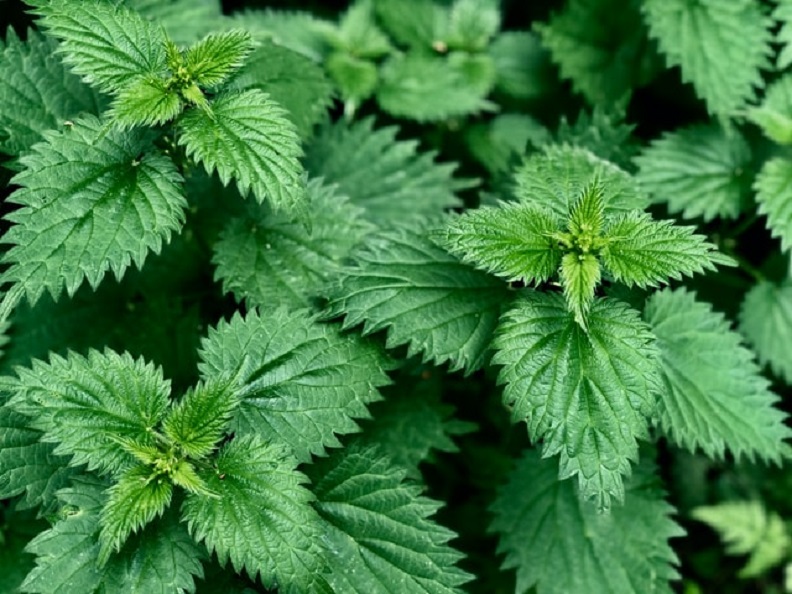
SAPS Award Holders
The SAPS Associates Awards support and celebrate UK teachers and technicians in the secondary and post-16 science classroom
We offer grants of up to £500 for the development of new teaching resources that will enhance students’ understanding of plants, whether in a broad sense of fundamental principles, lab techniques related to plant science, or a specific focus on an area of plant biology. Here are some examples of completed awards.

Evolutionary relationships, phylogenetic trees and finding new drugs
Chris Graham, Long Road Sixth Form College, Cambridge
Having recently attended a Science Seminar at Cambridge Botanic Garden and heard from University plant biologists about their work in the field of evolution, Chris wanted to share the issues he’d heard with his A-level biology students.
He’d found that evolution, natural selection and adaptation was one of the areas of the curriculum that most enthused his students. However, though Chris had plenty of exciting ‘stories of life’ to share from the animal kingdom, he’d previously been short of stories relating to the evolution of plants.
Chris brought together contemporary research into drug development for Alzheimers’ disease with information about how phylogenetics is used to identify potential new sources of drugs. He was keen to look at phylogenetics in more detail than it’s often given at A-level, since talking to the University researchers had made him aware that students often develop misconceptions that hinder their progress when returning to this at university. This resource would tackle misconceptions at an early stage, while having the advantage of students being able to see the direct relevance of studying this to real-life problems.
This result was a teaching resource which offered an unusual, challenging and thought-provoking representation of contemporary science, and which proved very popular with Chris’s own students.

Plants, drugs and medicines: a ‘trumps’ card game
Sarah McLusky, Newcastle College, Newcastle
Dr Sarah McLusky is a science lecturer at Newcastle College, teaching Biochemistry and Science in Society on FdSc and BTEC vocational science qualifications. She’s passionate about plant biochemistry, the subject of her PhD, and wanted a creative way to share her enthusiasm with her students.
Sarah developed a series of ‘Trumps’ style cards to help students learn about drugs from plants through playing a game. The cards have a picture of the plant, the chemical structure and a series of data categories, including toxicity, cost and molecular weight. Sarah had to make some adjustments to the originally proposed data categories, since reliable information had to be available for every plant, but the final result was an accurate and up-to-date set of information for 25 plant-derived pharmaceuticals.
Sarah was delighted to see how much her students enjoyed playing the game, and particularly with how quickly they picked up the complex information about the drugs. The resource was made available on the SAPS website. Sarah presented the resource at the ASE Annual Conference 2013, and the SAPS team presented the resource to Botanic Garden education teams at the Annual Botanic Garden Education Network conference 2012.
The SAPS Associates Award paid for Sarah’s time and costs in developing the resource. Sarah then received an additional grant to present her work at the ASE Annual Conference 2013.

Phytoremediation and phytomining: a practical activity
Phytoremediation is the use of green plants to decontaminate soils in situ. Soils can become contaminated from activities such as mining & manufacturing. In turn, the copper can be extracted from the plants, known as phytomining.
This practical activity investigates the use of hyperaccumulating plants to clean up copper contaminated soils. This demonstration uses Indian Mustard (Brassica Juncea) as the hyperaccumulator, as this can be grown in a short timeframe.
The mustard is grown hydroponically, with elevated levels of copper. The copper levels are measured over the test period and the absorption by the mustard seeds calculated.
This protocol was written by science technician Helen Bailey, based on the techniques she has developed for her school, and funded by a SAPS Associates Award.
Additional award holders and the resource developed…
Beverley Goodger, Sir John Deane’s College, Chester
Researching attitudes to biology in secondary school pupils
To survey secondary school pupils about their views on the biology components of their science courses. What areas of the course are particularly engaging to GCSE students, and why? How can we use this understanding to enhance existing biology teaching at sixth form?
Chris Graham, Long Road Sixth Form College, Cambridge
Raising awareness of STEM Careers with post-16 students
Sixth-form students are often unaware of the wide range of science careers available to them, falling back on old favourites such as medicine and veterinary studies. This resource is designed to raise awareness of a greater range of STEM careers for post-16 students.
Sarah Bayliss, Teacher Delegate to the Plant Science Summer School 2011
Deadly Diseases and Plant Pathology
In this new practical, students track down leaf pathogens under the microscope, as a starting point to consider the global impact of disease on society and the environment.
Richard Spencer, SRC Bede Sixth Form, County Durham
Plants ‘r’ mint – A synoptic approach to the A2 biology course
A2 biology students grow plants from cuttings, and relate the growth of ‘their’ plant to the content of the course wherever possible. Students will monitor growth, research interesting aspects of plants, visit local industries and capture their experiences in a journal.
Jules Gordon, George Spencer Academy, Nottingham
It’s a green world
Production of booklets to ensure a consistent approach to the teaching of OCR GCSE plants module “It’s a green world”.
Receive the latest resources and updates
Get half-termly email newsletters with new resources, CPD opportunities, plant science news and inspiration.
Sign up now